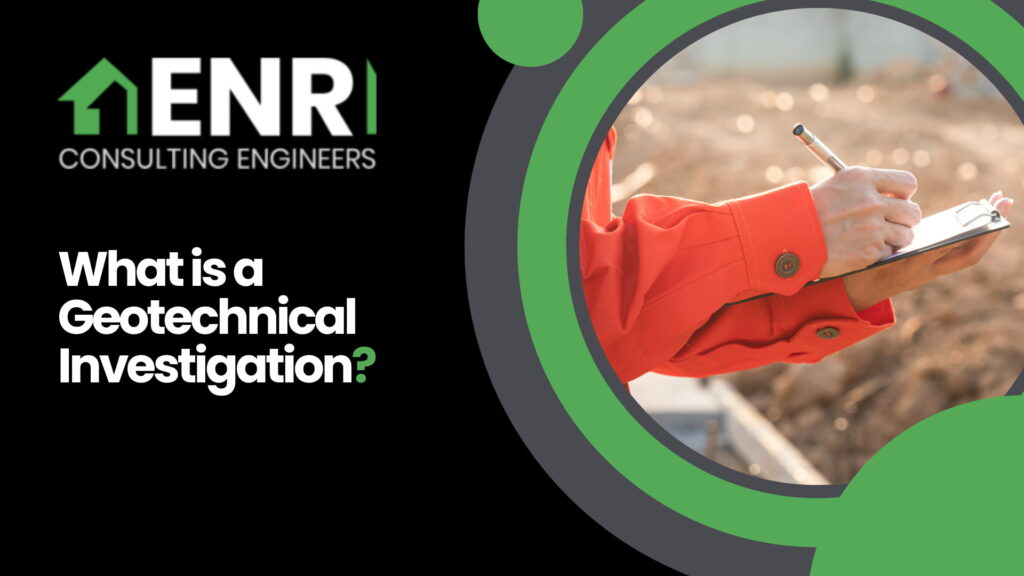What is a Geotechnical Investigation?
A geotechnical investigation is a process conducted to ascertain the physical properties of soil and rock at a specific site. A crucial component of any civil or structural engineering project, a geotechnical investigation determines suitability of the ground for various construction projects, from buildings and bridges to tunnels and roads.
All properties and structures must be supported by their foundations. Though foundations are not visible, they’re a vital element of any structural design.
If the ground or foundations are unsuitable, buildings can sustain damage from subsidence, cracking and sloping or even structural collapses.
Importance of Geotechnical Conditions on Foundations
Foundations, the element in engineering that connects structures to the ground, are greatly influenced by an area’s geotechnical conditions, as they directly impact the stability and performance of structures. A scrupulous investigation is required to ensure the soil and geotechnical conditions can support the loads imposed by a structure or building.
What Does A Geotechnical Investigation Involve?
Soil & Rock: Checking which types of soil and rock are present, and determining via their physical properties such as strength, permeability and distribution its suitability for engineering projects.
Groundwater Conditions: Investigating the presence, depth and quality of groundwater, which can impact foundation design and stability.
Site Stability: Studying the ground for potential landslides, subsidence and other ground movements.
Foundation Design: Providing data and geotechnical information to engineers for designing the appropriate foundations that can support and sustain structural projects.
Construction Planning: Checking for potential geotechnical challenges or constraints which may impact engineering projects.
Do I Need A Geotechnical Investigation?
Whether or not a geotechnical investigation is required depends on the project type and geotechnical conditions of the site area. For larger and complex structural and civil engineering projects, such as high-rise buildings, bridges and tunnels, detailed geotechnical information is generally required.
For big projects, it’s crucial to ensure foundational stability and mitigate risks, protecting public health and infrastructure.
If you’re aware of unusual or challenging site conditions, such as unstable soils, high groundwater levels or the potential for landslides, a geotechnical investigation should be considered.
Similarly, local regulations or building codes may require a geotechnical investigation or cut and fill analysis in particular areas.
Common Scenarios That Require Geotechnical Surveys
New Builds & Constructions – Building new homes, commercial buildings or other structures
Renovations & Extensions – If engineers are modifying an existing structure, particularly if there are signifiant changes to the foundation or load-bearing elements.
Site Development – Whilst preparing a site for construction, like clearing land or integrating utilities.
Landscaping – Building large landscaping areas, particularly when ground stability could be affected.

